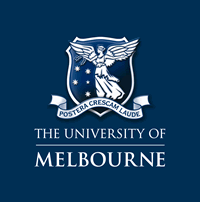Assoc Prof M Meinshausen, Prof D Notz
No more applications being accepted
Funded PhD Project (Students Worldwide)
About the Project
Future climate change is researched along various high and low emission scenarios that encapsulate different driving forces, such as greenhouse gases, aerosols and natural forcings. The primary technique are to use complex Earth System Models for these projections and provide policy makers and stakeholder with the multi-model ensembles (MMEs) and their means. There are several issues of why those MMEs are suboptimal, but it is less clear of how to address any shortcomings. For example, not all climate models run all scenarios, which makes the comparison difficult, so an adjustment for this “ensemble of opportunity” might need to be pursued. Another issue is that the MMEs of Earth System Models might be shifted in terms of key climate indicators (like climate sensitivity) compared to independently assessed ranges thereof. Other - more researched - examples are the model-interdependencies and how to account for those (which is still an open question). So far, little research has been conducted on how to potentially adjust the MMEs for altering forcing trajectories, for example, if SOX aerosol emissions are dropping much faster than anticipated across the scenario spectrum. Building on the insights from the Reduced-complexity Model intercomparison project (RCMIP.org), this PhD will investigate how to adjust MMEs from Earth System Models for changing forcings, whether that relates to new research insights on forcing amplitudes, an unforeseen volcanic event or similar. Methodologically, this PhD topic will - inter alia - make use of emulators, calibrated to individual CMIP6 models, in order to project those changes in projections due to varying forcing assumptions. A second approach is the statistical super-position of ESM spatio-temporal response patterns, e.g. adding a scaled single forcing ESM response to aerosols over an all-forcing run to mimic the response under an alternative aerosol emission scenario. The PhD candidate will pursue various research questions and methodological approaches in this realm of how to address shortcomings of MMEs.
If successful, the PhD candidate will be enrolled at both the University of Melbourne and Universität Hamburg. The candidate will be co-supervised by supervisors at both institutions, will be based at the University of Melbourne and will spend at least twelve months at Universität Hamburg.
The application process is competitive, with higher than the equivalent of a University of Melbourne 80% in a relevant degree expected.
Information on the University of Melbourne entry requirements: https://study.unimelb.edu.au/how-to-apply/graduate-research/international-applications/entry-requirements.
Information on the Universität Hamburg requirements: www.promovieren.uni-hamburg.de/en/min/promotion/voraussetzungen.
More Information on the program http://climatecollege.unimelb.edu.au/university-melbourne-university-hamburg-joint-phd-program
It is preferred that applications for this project are made through the following online form:
http://climatecollege.unimelb.edu.au/node/add/application
Funding Notes
The successful applicant will be enrolled in the Faculty of Science at the University of Melbourne. They will be part of the Australian-German Climate and Energy College, the University of Melbourne, and a member in the ‘School of Integrated Climate and Earth System Sciences (SICCS)’, the Center for Earth System Research and Sustainability (CEN), Universität Hamburg.
The candidate's scholarship will include a 100% fee remission scholarship, a living allowance for three years with a possible 6-month extension, and funding for travel.

 Continue with Facebook
Continue with Facebook

